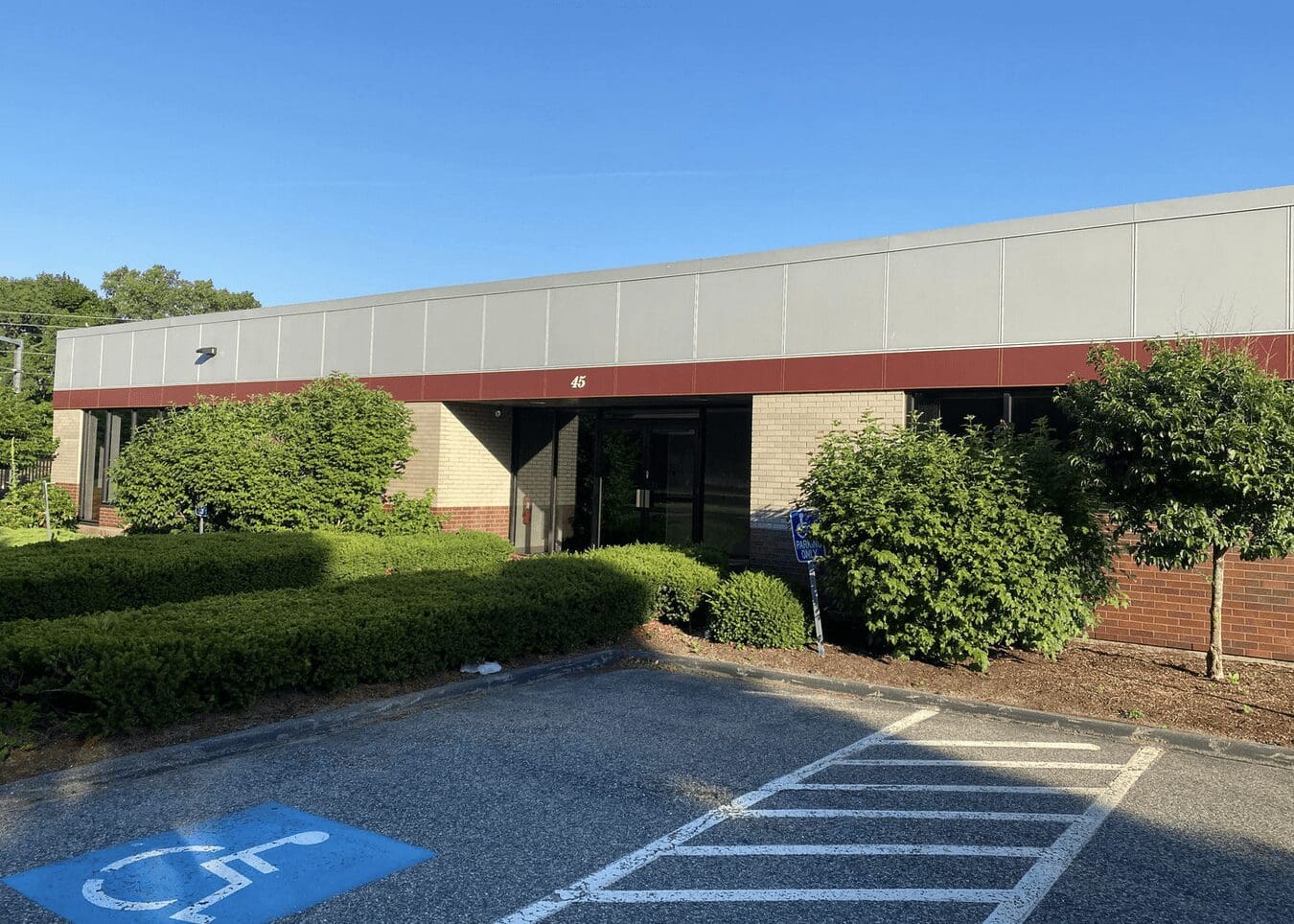Search Posts
Recent Posts
- Real Estate in RI: Benefit St.’s John Mawney House sells for $1.8M – Compass for seller May 27, 2025
- ART! Blue Star Museums offer free summer art visits for military families May 27, 2025
- Judge Frank Caprio to hold book signing at Mt. Pleasant Library – Compassion in the Court May 27, 2025
- Parenting while living with behavioral health challenges – Ocean State Stories May 27, 2025
- Rhode Island Weather for May 27, 2025 – Jack Donnelly May 27, 2025
Categories
Subscribe!
Thanks for subscribing! Please check your email for further instructions.

CODAC buys new building for its headquarters – Richard Asinof
by Richard Asinof, ConvergenceRI, contributing writer
Photo: The new agency headquarters for CODAC at 45 Royal Little Drive in Providence.
The purchase reflects the continued growth of Rhode Island’s oldest, largest nonprofit outpatient provider of treatment of opioid use disorders
After a seven-year search that included exploring more than 30 potential properties, CODAC has closed on the purchase of a new building to serve as its agency headquarters, at 45 Royal Little Drive in Providence, according to Linda E. Hurley, president and CEO.
Founded in 1971, CODAC Behavioral Healthcare is Rhode Island’s oldest and largest nonprofit, outpatient provider of treatment for opioid use disorder. With seven community-based locations, as well as programming at the R.I. Department of Corrections, CODAC is well positioned to deliver services wherever they are needed across the state.
The agency has worked with individuals, families and communities in Rhode Island for more than 45 years. Collectively, CODAC’s staff or more than 160 skilled clinical, medical and administrative professionals serves more than 2,600 patients ar any given point in time, according to the agency’s website.
In an interview conducted by ConvergenceRI in 2020 about the difficulties of operating during the pandemic, Hurley, who described herself as a glass-half-full kind of person, spoke at length about the frustraions in securing adequate resources and insurance reimbursements to support the work.
“It’s like proving gravity at this point; there is nothing left to prove,” Hurley said, when talking about her work as a member of the Senate study commission on insurance rate reimbursements chaired by Sen. Joshua Miller, regarding her presentation that detailed the ongoing disparities in insurance rates and the detrimental impacts on clients and on being able to recruit and maintain staff.
And, Hurley emphasized, the biggest challenges of the work still had to do with the difficulties overcoming the stigma, fear, prejudice and bias around substance use – and the failure to recognize that such disorders are “chronic, relapsing diseases of the brain.”
“I don’t think we can ever say it enough, over and over, that the diseases we treat here at CODAC, including substance use and opioid use disorders, are chronic, relapsing diseases of the brain, and need to be respected as that,” Hurley said.
The first “use” of a substance may be “volitional,” Hurley explained, but once addictive changes in the brain have occurred, it is no longer a matter of personal choice.
“This is a disease of the brain, and treatment works; sometimes it needs medicine, sometimes it doesn’t,” Hurley continued. “The more we can help individuals, the more we can rid of judgment and self-judgment as barriers to treatment, the closer we are to healing more people from the disease. We all deserve to walk this planet with some peace,” saying she was speaking from the heart.
Comprehensive services
The comprehensive list of services provided by CODAC include:
• Medication Assisted Treatment (MAT) for opioid use disorder, utilizing all three FDA approved medications
• Expedited access to care, with initiation of the assessment/treatment process within 24 hours of first contact
• Psychiatric services, offering both on-site psychological and mental health evaluation and treatment, as well as assessment for outside referral
• Counseling and education for partners and family members affected by the substance use of someone they love
• Pain management programs and alternative approaches to treating pain
• Overdose prevention education and access to Naloxone
• Peer recovery support programs, including Peer Support Specialist training opportunities for individuals already in recovery
• Tobacco cessation treatment and training services provided by ATTUD-certified, master level Tobacco Treatment Specialists Programs for gambling disorder
• Rapid Hepatitis C testing, with, on-site treatment available
• Off-site services in nursing homes and in residential care facilities
• Special services for pregnant women and new mothers
• Counseling for DUI and other criminal justice referrals, including: Probation and Parole; Drug Court, Juvenile and Family Court referrals
• Evaluations and treatment required for Department of Children, Youth, and Families (DCYF-involved families)
• Treatment/reentry services, and recovery support for Department of Corrections referrals
• Assessment, medication-assisted treatment—utilizing all three FDA approved medications for the treatment of opioid addiction—and detoxification services for incarcerated individuals at the ACI
• Access to enhanced care utilizing wellness-based or promising models: acupuncture, therapeutic journaling, yoga
_____

Richard Asinof is the founder and editor of ConvergenceRI, an online subscription newsletter offering news and analysis at the convergence of health, science, technology and innovation in Rhode Island.
To read more stories by Richard Asinof: https://rinewstoday.com/richard-asinof/

Not everyone who takes Opioids is an addict or abuses them. Phantom Pains for 14 years only oxycodone works. Only when needed skip a day no side effects no withdrawal symptoms.